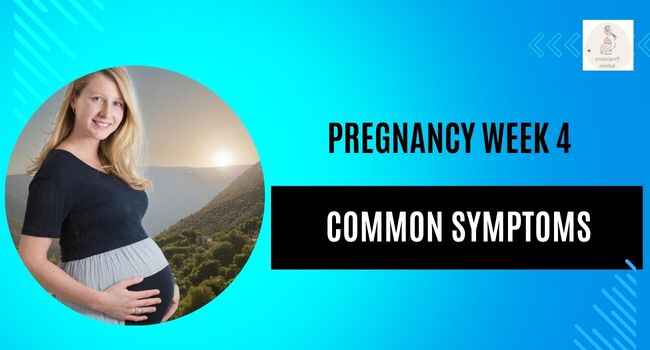Would you like to know more about the Pregnancy Week 4? This article provides a comprehensive guide that covers symptoms and actions for this phase.
Table of Contents
Symptoms of Pregnancy Week 4: What to Expect
Today we want to talk about the fourth week of pregnancy, as many may not expect its significance in just four weeks.
Let’s delve into the development of the fetus in the Pregnancy Week 4. At this stage the embryo is about the size of a poppy seed. It has two layers, the hypoblast and the epiblast, from which all organs will begin to develop.
During the Pregnancy Week 4, the embryo’s outer cells attach to the uterine wall and establish a connection to the mother’s bloodstream to receive nutrients and oxygen. The inner cells of the embryo divide into two layers: the hypoblast and the epiblast, which later differentiate into three layers. Each layer initiates the development of different organs. Meanwhile, the embryo resembles a small sac that is attached to the lining of the uterus and provides nutrition. After a few weeks, the placenta formed from the outer layer takes over the role of supplying nutrients and oxygen. It surrounds the outer area of the amniotic fluid sac and protects the fetus from external influences.
In the early stages of pregnancy, the embryo resembles a small sac that is attached to the lining of the uterus and provides nutrition for the baby. After a few weeks, the mother’s placenta will be completely closed and will take over the task of supplying nutrients and oxygen. At this point, the amniotic fluid surrounds the embryo like a protective barrier and shields it from external influences. The placenta forms outside the amniotic sac.
Over the next five weeks of pregnancy, some crucial changes occur as the embryo develops rapidly. During this time, the rudimentary placenta and umbilical cord grow, allowing oxygen and nutrients to be transferred from the mother’s body to the baby.

What physical changes might mothers experience in the fourth week of pregnancy?
First of all, it is important to note that during this period it is normal for a mother not to notice any new changes in herself. In most cases, most mothers do not experience any noticeable pregnancy symptoms before the sixth week. However, some may notice certain signs, such as nausea or morning sickness, which typically begin around the fourth week. This can occasionally begin as early as the fourth week. The problem could get worse next month.
During the Pregnancy Week 4, women may notice increased sensitivity and tenderness in their breasts. Natural changes in breast shape can occur due to pregnancy. Breast size may begin to increase between weeks six and eight, a change that continues throughout pregnancy.
It is very normal to feel tired or experience mood swings during the first three months of pregnancy. Although symptoms may subside somewhat midway through pregnancy, fatigue and mood swings may return toward the end. Hormonal fluctuations, particularly an increase in progesterone levels, are considered significant factors in these symptoms.
In the pregnancy fourth week, various hormones are released more than usual, causing an increase in body temperature. Blood volume and weight also increase during this time, which contributes to an increase in body temperature.
What to do during the Pregnancy Week 4?
First of all, you should take a pregnancy test. Trying to get pregnant can make the wait a little challenging, but testing about a week after your missed period usually gives accurate results. So, it is estimated that you can get accurate results from a pregnancy test during the Pregnancy Week four. A test before your period due date may not provide accurate results. For people whose hormone levels rise slowly, it may take a little longer to get accurate results. If you have irregular periods, it can be a little tricky to time the test because the date of the next period is uncertain.
In such cases, testing after the next period’s due date or seven weeks after the last period could provide accurate results. A pregnancy test can be taken at any time of the day, but it is recommended to drink slightly less water on the day of the test as excessive water intake dilutes hormone levels. Some tests recommend doing the test with the first urine in the morning because hormone levels are higher due to accumulation at night.
Read Also: Pregnancy Third Week.
